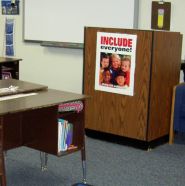There are concerns about the impact that the coronavirus pandemic is having on children with SEND (Special Educational Needs).
Currently schools remain open for children deemed as ‘vulnerable’. However many schools had temporarily closed because they were unable to support children in need.
A particular concern is the support for students with dyslexia and dyspraxia. A BBC report in 2019 found that 80% of students with dyslexia were already being missed by schools, therefore will the support available further penalise these students who still not expected to attend? This blog post investigates.
What are Special Educational Needs?
SEND stands for Special Educational Needs and Disability. There is an expectation on all schools to be accessible for all children in the community.
According to Devon Council, a child or young person of compulsory school age is said to have SEND if they:
- Have a significantly greater difficulty in learning than other students of the same age
- Have a disability which prevents or hinders them from making use of educational facilities for others provided for the same age group in mainstream schools
Many children with SEND are said to have a disability under the Equality Act 2010, which states: “a physical or mental impairment which has a long term or substantial adverse effect on their ability to carry out normal day-to-day activities.”
What is happening in terms of SEND students’ education?
While schools remain open for vulnerable students, there is some concern that not all vulnerable students have been identified as having a place available. Further it has been reported that of the proportion of vulnerable children expected to be in schools, less than 5% are attending.
ITV News reported yesterday that since lockdown began, charities have had “hundreds of parents” who have been getting in touch with them, “asking for help and telling them they feel forgotten”.
The Government has two forms of actions recommended for parents: send the child to school or use the Oak National Academy – both options are unsuitable for many students with SEND.
Why are MPs concerned about SEND students?
Tom Hunt, Conservative MP for Ipswich, raised concern about the needs of more provision for SEND students – particularly those with dyslexia – at the Education Select Committee meeting with Gavin Williamson on Wednesday:
I’m really concerned about students with dyslexia and dyspraxia. The Oak Academy does not support those with some forms of autism and SEND, but I have concern from a number of teachers that it is not dyslexia friendly. (People with dyslexia) struggle with processes and it can be really difficult for us. Children with dyslexia have very special relationships with the teachers that they work with on a daily basis, and those relationships are what gets them through the challenges and help them progress. I think when considering the impact this is having on children with special educational needs, I would urge the Government to support those with dyslexia and dyspraxia, as well as those with severe forms of SEND.
Education Secretary, Gavin Williamson echoed concerned.
(I understand this is) something that people are incredibly worried about. We have tried to do an across-spectrum of needs that children have, with a broad range of advice and resources available to them. But I do recognise there is need for evermore support. The Oak National Academy was a resource that was born out of crisis and has been pulled together at speed by the amazing and wonderful people that have put so much personal effort into making it happen. But we will certainly be looking at what more we can do to help children and those families that are trying to support children with dyslexia and dyspraxia.
How should the Government be supporting SEND students during these times? Let us know in the comments section below.
How does EDLounge supports SEND students?
EDLounge has a range of facilities aimed at supporting students with special educational needs, including dyslexia. Among the facilities are options to change font appearance, colour and backgrounds. Questions can also be read out, so those who need reading support are provided with an additional resource.
EDLounge has a range of 11,000 lessons in subjects including Maths, English and Science. In English Literature, books are supported in e-book form for further support to these students.
For more information click here. Alternatively call 01909 568 338.










